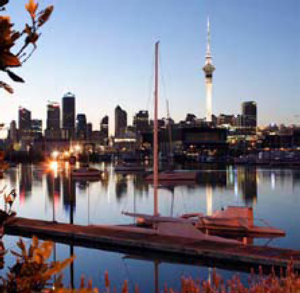
by Miriam Bell

New Zealand Mortgages & Securities director James Kellow said Special Housing Areas (SHAs) were making a major difference to Auckland’s supply issues.
A “staggering” 86 SHAs have now been approved in Auckland and more were on the way as the council and developers continue to consider more locations which could be suitable for SHAs, he said.
Last week Building and Housing Minister Nick Smith and Auckland Mayor Len Brown announced two new greenfield SHAs at Glenbrook and Drury in Franklin.
The two latest SHAs will deliver 1,800 new houses and, in total, the 86 SHAs have a combined potential yield of up to 45,000 new houses for Auckland.
Kellow said the Housing Accords & Special Housing Areas Act 2013 was always going to take a couple of years to deliver some tangible results.
This was due to the fact that the subdivisions still needed to be designed and approved, the bulk infrastructure provided, and the houses consented and built.
“However, we’re away now and over the next 18 months we will see bricks and mortar sprouting like grass.
“The forthcoming earthworks season starts on 1 October and I predict it will be the busiest in terms of actual sections created.”
The Auckland Housing Accord*, which was agreed on in October 2013, set a target of 39,000 new sections and dwellings to be consented over three years.
Around the mid-point in March 2015, 16,734 sections and dwellings had been consented, and officials were confident the three year target would be reached.
Kellow said the current government didn’t necessarily have all the answers and, at times, the Auckland Council had not handled the issue perfectly.
But with the SHAs and increased apartment construction now starting, along with the recent decision to open up surplus government and Auckland Council-owned land for housing, the Auckland housing problem was being addressed, he said.
When announcing the latest Auckland SHAs, Smith said progress with the SHAs was helping address Auckland’s issues of housing supply and affordability.
The government has a wider programme of work underway which includes initiatives to constrain building materials costs, rein in development contributions, cut compliance costs and invest in improved sector productivity, he said.
“We remain committed to supporting this momentum and will continue with our programme to grow the supply of housing.”
However, others feel the degree of Auckland’s shortage has been understated.
For example, BNZ chief economist Tony Alexander recently estimated the shortage to be 24,351 - but he also believes it could be significantly more.
If Auckland was assumed to have the same household occupancy rate as the rest of the country (2.58 people per average house), the shortage would be near 75,000, he said.
Earlier this year, a Ministry of Business, Innovation and Employment report estimated that, over the next decade, Auckland would need another 22,000 houses in addition to the 50,000 target set by the Auckland Council.
Meanwhile, Green Party Co-leader Metiria Turei said the SHAs were not a “magic bullet” which would “fix” Auckland’s housing issues.
Outlying greenfield developments would not make Auckland a more affordable city or a more liveable city, she said.
“Instead of plonking over-priced subdivisions down in rural and semi-rural areas, the government should be pushing for quality medium- to high-density housing around well-funded and well-serviced public transport corridors.”
*The Auckland Housing Accord provides for the creation of SHAs by the Auckland Council with the approval of the government. Qualifying developments in these areas can be streamlined and fast-tracked.
| « Seven top tips from a property rock star | Free Investment Property Showcase Events: Auckland, Wellington and Christchurch » |
Special Offers
No comments yet
Sign In to add your comment

© Copyright 1997-2026 Tarawera Publishing Ltd. All Rights Reserved